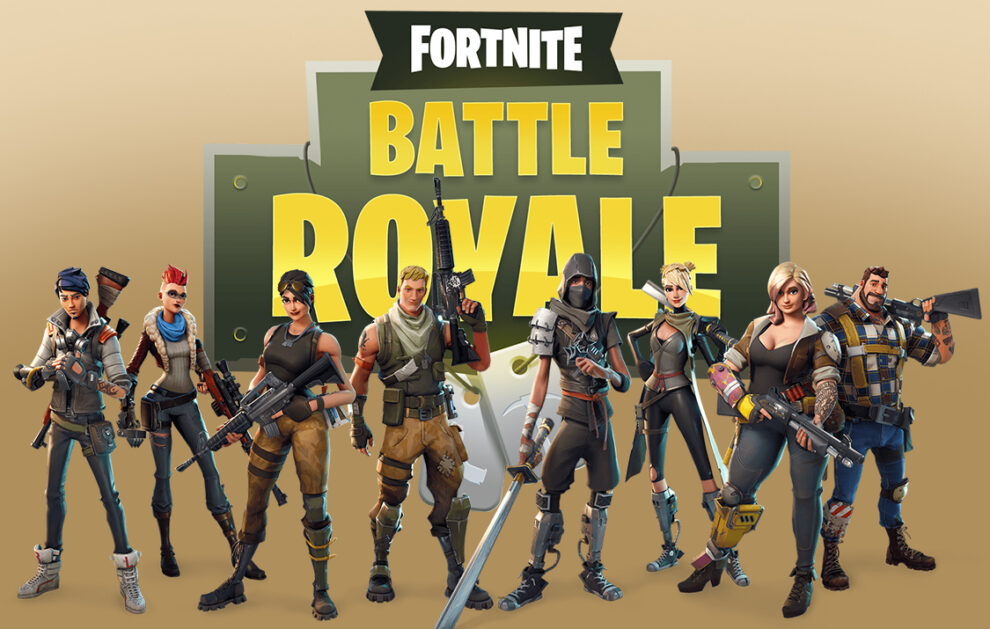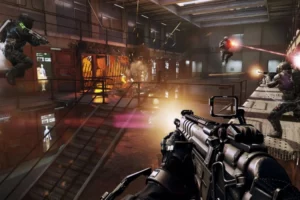From Humble Beginnings to Global Phenomenon
In 2017, Epic Games launched Fortnite as a cooperative PvE title called “Save the World.” However, it was the addition of the free-to-play Battle Royale mode, initially dubbed “Fortnite Battle Royale,” that catapulted the game into the stratosphere. The combination of accessible building mechanics, cartoony visuals, and constant updates kept players hooked, and soon, Fortnite wasn’t just a game; it was a cultural touchstone.

Building a Better Battle Royale
Fortnite’s building system set it apart from other battle royales. Unlike PUBG, where the focus was on gunplay and positioning, Fortnite allowed players to construct elaborate forts, ramps, and even floating skybases. This added a layer of strategic depth and creativity that resonated with a broad audience. The cartoony visuals, in stark contrast to the gritty realism of some competitors, attracted a wider range of players, including younger demographics.
Constant Evolution, Unforgettable Events
One of Fortnite’s biggest strengths is its commitment to constant evolution. Epic Games consistently adds new weapons, vehicles, locations, and gameplay mechanics, keeping the experience fresh and exciting. But Fortnite is more than just new loot; it’s about creating unforgettable moments. In-game concerts featuring Marshmello and Travis Scott, live events like the rocket launch and the black hole that devoured the entire map, and collaborations with major pop culture franchises like Star Wars and Marvel cemented Fortnite’s place as a pop-culture juggernaut.
Beyond the Battle Royale: A Cultural Impact
Fortnite’s impact extends far beyond the realm of gaming. The game has spawned countless memes, dances, and catchphrases that have permeated popular culture. It has influenced fashion, music, and even the way we communicate. Fortnite has become a social phenomenon, connecting players from all walks of life in a shared virtual world.
A Legacy of Innovation
Fortnite’s success has undoubtedly influenced the gaming industry as a whole. The free-to-play model, battle passes, and live-service approach have become commonplace. Cross-platform play, once a rarity, is now seen as essential thanks to Fortnite’s pioneering efforts. Other developers have taken inspiration from Fortnite’s building mechanics, emotes, and even its lighthearted tone.
The Future of Battle Royale
While Fortnite’s reign as the undisputed king of battle royale may be facing challenges from newer titles like Apex Legends and Warzone, its impact on the genre is undeniable. Fortnite has shown that a battle royale can be more than just a competitive shooter; it can be a platform for creativity, community, and even cultural events. As the genre continues to evolve, Fortnite’s legacy as a game-changer will endure.
Conclusion
In just a few short years, Fortnite has gone from a niche PvE title to a global phenomenon that redefined the battle royale genre and even reshaped the gaming industry. Its accessible building mechanics, constant updates, and commitment to unforgettable events have captivated millions of players worldwide. And while the future of battle royale may be uncertain, there’s no doubt that Fortnite’s legacy of innovation and cultural impact will continue to inspire developers and players for years to come.
















Add Comment